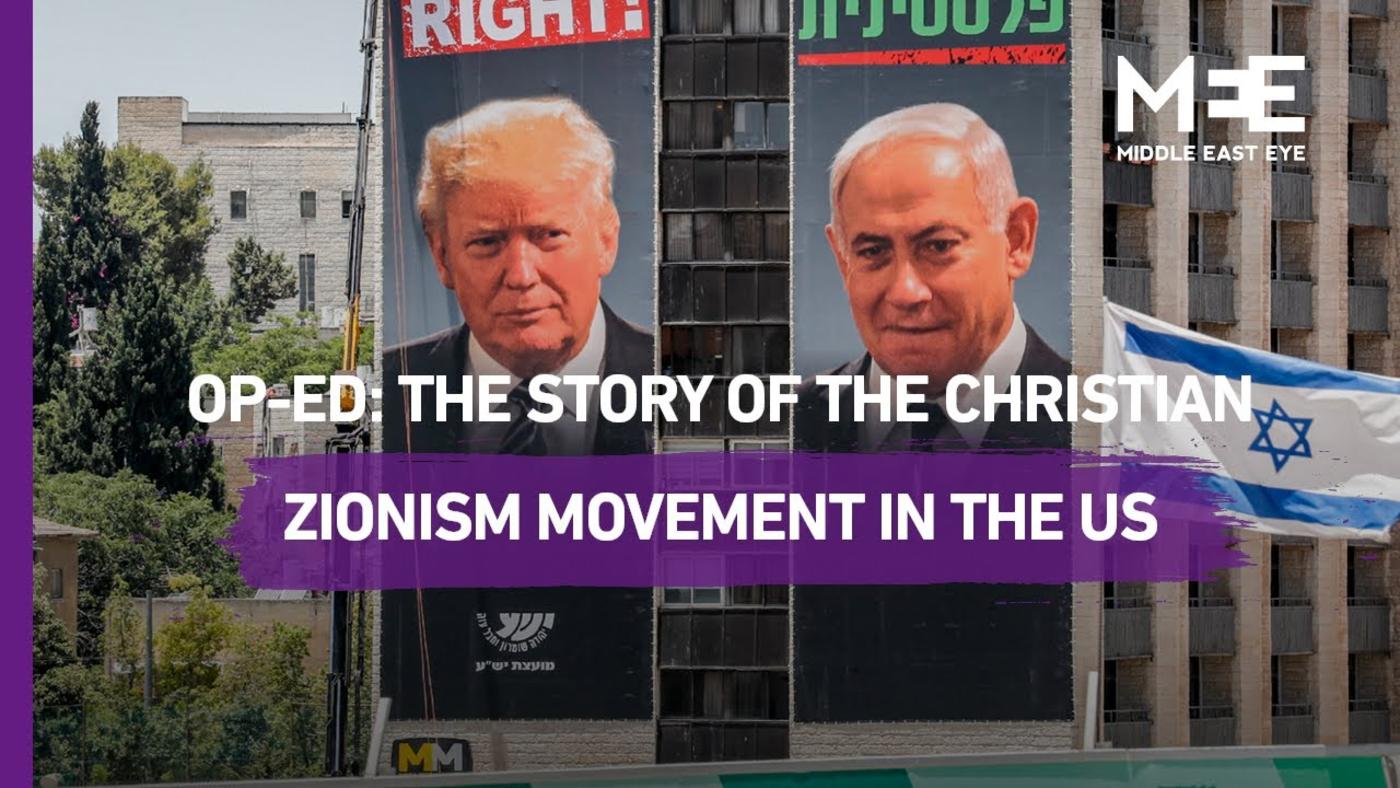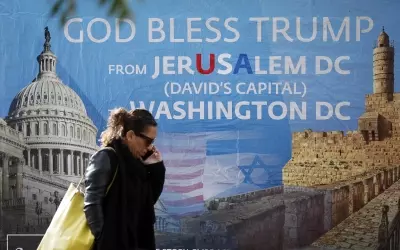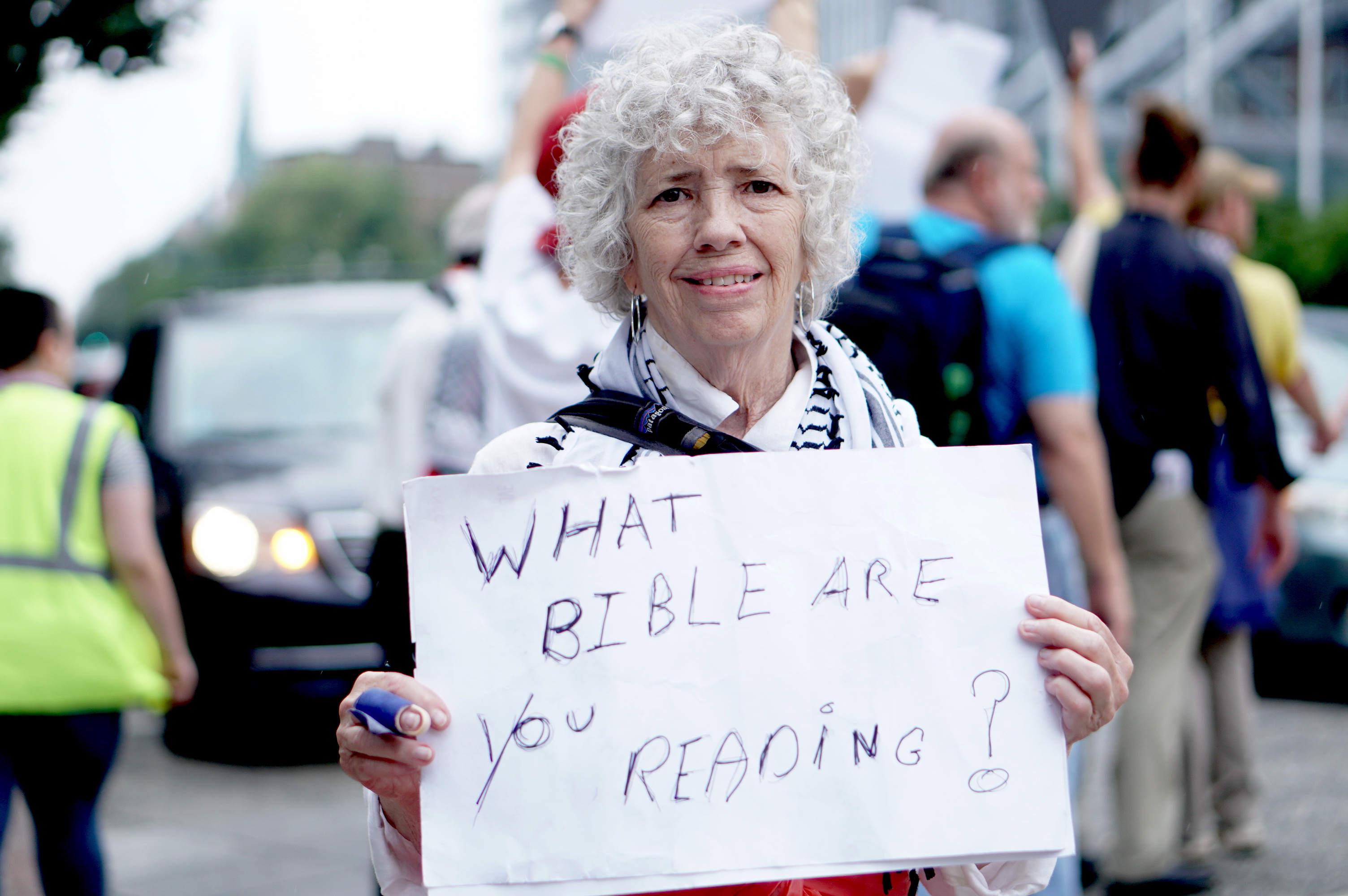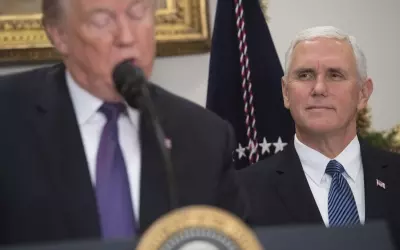Why Christian Zionists see themselves as winners in a Gulf pact with Israel
In late June, John Hagee, a pastor and founder of Christians United for Israel (CUFI), offered Gulf states uncomfortable with Israel's plan to annex large parts of the occupied West Bank a simple solution: step out of the shadows and publicly embrace Israel.
"Gulf states, who are claiming that Israeli 'annexation' would lead to an end to their not-so-secret relations with Israel, ought to put their requests in a positive light," Hagee told the Jerusalem Post. "Rather than threaten to walk away, they should publicly and formally offer normalisation of ties between the broader Arab world and Israel."
Last Thursday, when Israel and the United Arab Emirates (UAE) announced they would normalise relations in exchange for Israel halting its planned annexation of the occupied West Bank, CUFI was among the first organisations to applaud the move.
'CUFI was founded in 2006 in direct response to Israel-Iran tensions, and you can't understand the Israel-UAE agreement without contextualising it in the concern about Iran by Gulf states'
- Daniel Hummel, author
"We consistently pray for the peace of Jerusalem, and today those prayers were answered in a big way," the organisation said in a statement.
"In the context of the discussion about extending Israeli sovereignty to portions of Judea and Samaria [the occupied West Bank], we made clear in late June that this is precisely what the Gulf states should do, and we hope other Arab nations will follow the UAE’s lead."
Later on Thursday, President Donald Trump said Christianity played "a very big part of the overall negotiation", while his son-in-law Jared Kushner teased reporters that other Arab states could follow suit in normalising ties.
Donald Wagner, a professor of religion and Middle Eastern Studies at North Park University in Chicago, told Middle East Eye that approximately 15 to 18 percent of US evangelicals are fundamentalist Christian Zionists who believe Jews must be supported to return to their spiritual homeland.
According to the movement's theology, once they are assembled in Israel it would fulfil biblical prophecy - triggering the return of Jesus which would in turn bring about the mass conversion to Christianity for some and death for others.
Christian Evangelicals for Israel
Over the past 40 years, Christian evangelicals have played an increasingly large role in US foreign policy. But since 2006, through the formation of CUFI, the movement has grown into a powerful force in US politics.
The Pew Research Center reported in 2018 that white evangelical Christians make up 76 percent of the overall evangelical population in the US, which itself is 25 percent of the American electorate.
With the election of Trump and the inclusion of devout Christian evangelicals such as Vice President Mike Pence and Secretary of State Mike Pompeo within his administration, CUFI - along with its five million-plus members - has enjoyed unprecedented access to the White House.
"As Trump's base, groups like CUFI are closely aligned with the Trump administration and the Trump administration is interested in pleasing CUFI," Daniel Hummel, author of Covenant Brothers: Evangelicals, Jews, and US-Israeli relations, told Middle East Eye.
A Pew poll in August showed that 83 percent of white evangelicals still support Trump. With the UAE-Israel deal, experts say this demographic is likely to be further energised.
"The big shift, historically speaking, since 2006 and the creation of CUFI, is that in the Trump administration the major domestic political constituency of concern is American evangelical lobby groups instead of American Jewish-led groups like AIPAC," Hummel said.
For instance, the dismantling of the Iranian nuclear deal, the cutting of aid to Palestinians, the project of moving the US embassy to Jerusalem and the so-called "deal of the century" were projects abetted and advanced by Christian Zionists, he said.
"CUFI was founded in 2006 in direct response to Israel-Iran tensions, and you can't understand the Israel-UAE agreement without contextualising it in the concern about Iran by Gulf states," Hummel said.
While the deal between the UAE and Israel has put the annexation of large parts of the occupied West Bank on hold - a huge matter for Christian Zionists - Hummel said the movement saw improving ties between Israel and potentially other Gulf states as a step towards curbing Israel's biggest threat: Iran.
The pact has already secured the plaudits of Democratic presidential nominee Joe Biden, as well as nearly every right-wing and Zionist group in the US.
Christian Zionists have also used normalisation to elucidate a willingness on Israel's part to compromise in pursuit of peace and interfaith harmony.
Eagles' Wings, a Christian missionary group dedicated to strengthening ties with Israel, said the development "indicates a positive and peaceful direction for the immediate and long-term future of the Middle East".
"Israel's desire to work with willing partners in the Middle East continues to be proven as world events unfold in these unprecedented times," Eagles' Wings said in a statement.
'Nothing to celebrate'
As part of their belief, Christian Zionists refer to the occupied West Bank as the biblical lands of Judea and Samaria. For the movement, "annexation" is a misnomer because they believe Israel has a historic right to the land.
Palestinians living in the occupied West Bank and the US have summarily condemned Washington's attempts to use the UAE-Israel deal to normalise the persecution and ethnic cleansing of Palestinians by Israel.
Progressive Jewish American groups like IfNotNow and Jewish Voice for Peace have also slammed the deal as "nothing to celebrate".
"As 200+ Palestinian civil society organizations celebrate the 15th anniversary of the BDS movement for Palestinian justice and its successes with global unions, educational institutions and church denominations, it is shameful that we have to commemorate an Arab country choosing to normalise state violence against our people," Tarek Abuata, a Christian Palestinian and executive director of Friends of Sabeel North America (FOSNA), told MEE.
Likewise, Amer Zahr, president of New Generation for Palestine, told MEE that when normalisation takes place with Israel "without centering the Palestinian problem - then you are basically excusing and accepting everything that Israel has done to us for the past 72 years".
Palestinians have routinely argued that talk of peace and interfaith harmony from representatives of the Gulf as well as Israel and even Christian Zionists were merely euphemisms to defend Israeli crimes and preserving the status quo.
When the Israeli-UAE deal, known as the Abraham Accord, was announced by the White House, US ambassador to Israel David Friedman told reporters that it was in reference to Abraham the father of three great faiths: Judaism, Christianity and Islam.
Adding to the discourse, Jared Kushner, President Trump's son-in-law, added: "this [deal] will enable people to take flights from Dubai and Abu Dhabi directly to Tel Aviv. Muslims will be welcome in Israel and this will create better interfaith exchange."
Hummel said normalisation between the two countries was a type of peace that favours Israeli interests.
It would neither end anti-Palestinian, anti-Muslim or anti-Arab bigotry, nor would it disavow Israel's larger project of normalising its grip on Palestinian land.
"Reading Hagee's statement on the peace agreement, he sees this deal as a 'decision to suspend sovereignty extension plans' and an implicit recognition of Israeli sovereignty over the West Bank by the UAE.
"CUFI sees it as legitimating Israel's diplomatic and international standing. It also sees the deal as a win for Trump in his re-election year," Hummel said.
And though Trump and Netanyahu have already framed the pact as a diplomatic coup and hope to alleviate deepening discontent with their administrations ahead of elections in both countries, Christian Zionists see the developments as a set of irreversible facts on the ground that would preserve Israel's dominance in the Middle East.
Middle East Eye propose une couverture et une analyse indépendantes et incomparables du Moyen-Orient, de l’Afrique du Nord et d’autres régions du monde. Pour en savoir plus sur la reprise de ce contenu et les frais qui s’appliquent, veuillez remplir ce formulaire [en anglais]. Pour en savoir plus sur MEE, cliquez ici [en anglais].








